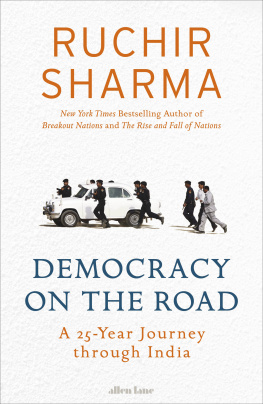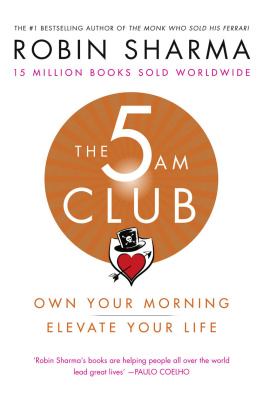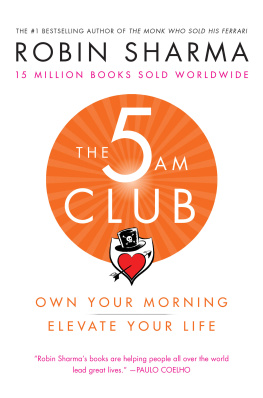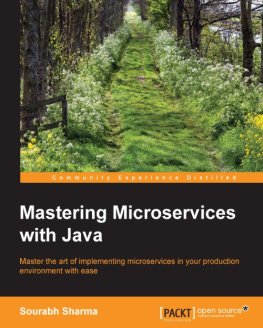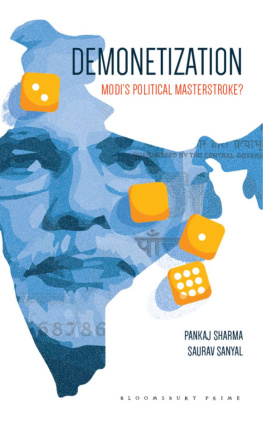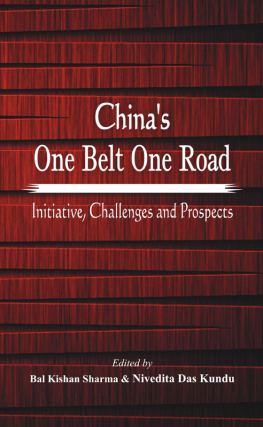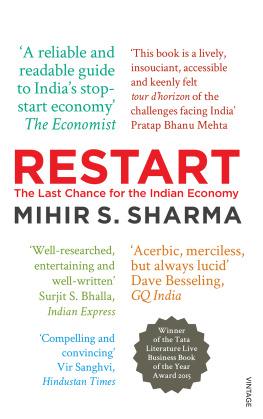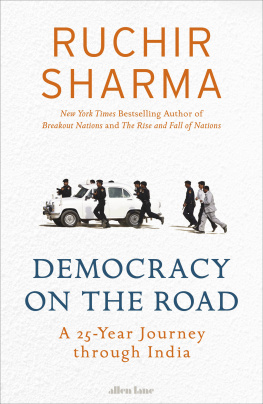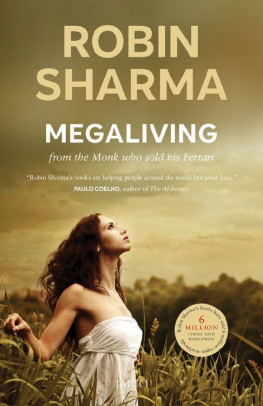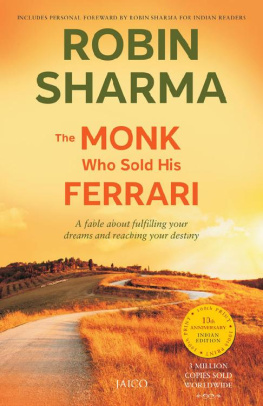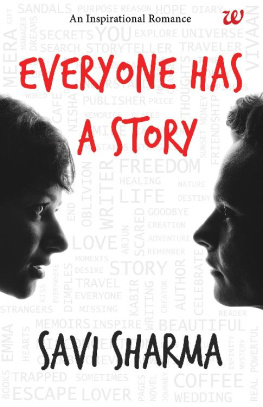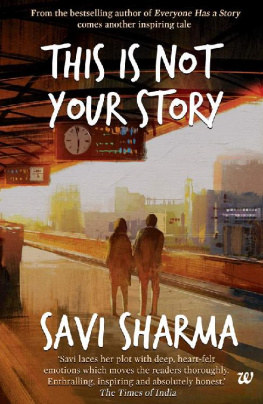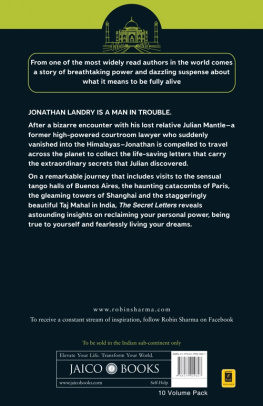Sharma - Democracy on the Road
Here you can read online Sharma - Democracy on the Road full text of the book (entire story) in english for free. Download pdf and epub, get meaning, cover and reviews about this ebook. City: London, year: 2019, publisher: Penguin Books Ltd, genre: Politics. Description of the work, (preface) as well as reviews are available. Best literature library LitArk.com created for fans of good reading and offers a wide selection of genres:
Romance novel
Science fiction
Adventure
Detective
Science
History
Home and family
Prose
Art
Politics
Computer
Non-fiction
Religion
Business
Children
Humor
Choose a favorite category and find really read worthwhile books. Enjoy immersion in the world of imagination, feel the emotions of the characters or learn something new for yourself, make an fascinating discovery.
Democracy on the Road: summary, description and annotation
We offer to read an annotation, description, summary or preface (depends on what the author of the book "Democracy on the Road" wrote himself). If you haven't found the necessary information about the book — write in the comments, we will try to find it.
Sharma: author's other books
Who wrote Democracy on the Road? Find out the surname, the name of the author of the book and a list of all author's works by series.
Democracy on the Road — read online for free the complete book (whole text) full work
Below is the text of the book, divided by pages. System saving the place of the last page read, allows you to conveniently read the book "Democracy on the Road" online for free, without having to search again every time where you left off. Put a bookmark, and you can go to the page where you finished reading at any time.
Font size:
Interval:
Bookmark:


- PART TWO: THE CONGRESS MEETS ITS MATCH
1998 TO 2004 - PART THREE: THE RISE OF THE DEVELOPMENT STARS
2005 TO 2010 - PART FOUR: THROWING THE BUMS OUT, AGAIN
2011 TO 2014 - PART FIVE: MODI AGAINST THE REST
2014 TO 2018

ALLEN LANE
UK | USA | Canada | Ireland | Australia
India | New Zealand | South Africa
Penguin Books is part of the Penguin Random House group of companies whose addresses can be found at global.penguinrandomhouse.com.

First published in India by Penguin Random House India 2019
First published in Great Britain by Allen Lane 2019
Copyright Ruchir Sharma, 2019
The moral right of the author has been asserted
ISBN: 978-0-241-38808-2
This ebook is copyright material and must not be copied, reproduced, transferred, distributed, leased, licensed or publicly performed or used in any way except as specifically permitted in writing by the publishers, as allowed under the terms and conditions under which it was purchased or as strictly permitted by applicable copyright law. Any unauthorized distribution or use of this text may be a direct infringement of the authors and publishers rights and those responsible may be liable in law accordingly.

Let the conversation begin
Follow the Penguin twitter.com/penguinukbooks
Keep up-to-date with all our stories youtube.com/penguinbooks
Pin Penguin Books to your pinterest.com/penguinukbooks
Like Penguin Books on facebook.com/penguinbooks
Listen to Penguin at soundcloud.com/penguin-books
Find out more about the author and
discover more stories like this at penguin.co.uk
Ruchir Sharma is Head of Emerging Markets and Chief Global Strategist at Morgan Stanley Investment Management. His acclaimed book, Breakout Nations: In Pursuit of the Next Economic Miracles (2012), was an international bestseller. Sharma began his career as a writer and still contributes regularly to the Wall Street Journal, Financial Times, Foreign Affairs and other publications. One of the worlds largest investors, he was named one of Foreign Affairs Top Global Thinkers in 2012 and one of Bloomberg Markets 50 most influential thinkers in 2015.

For the first fifteen years of my life, my fathers job as a naval officer took our family from one big city to another, from Delhi to Mumbai to Singapore. Then every summer, we returned for a month to the same small town lost in western Uttar PradeshIndias most populous and one of its poorest states. My mother was born in Bijnor, where her family had lived for generations, so off we went to stay with my grandparents.
Today my big city friends are surprised to hear that I spent so much time in a town that defines the word mofussil, originally a British term for territories outside the colonial capitals of the East India Company, today an Indian term for territories outside the experience of most urbanites. My former classmates see me as cosmopolitan since I wandered farther than most, leaving India for New York and working in global finance; but those of my generation, even those who stayed closest to home, experience small-town India mainly through books. They have not lived there. Those summers in Bijnor, starting in the mid-1970s, are what prepared and inspired me to hit the road, later in life, trying to understand the intensely local, often mofussil passions that shape democracy in India.
Everyone in our house called grandfather Babuji, as a mark of respect. He was a criminal defence lawyer and wealthy landlord, but money and community influence were not enough to bring modern amenities to a place like Bijnor in the 1970s and 80s. Home was a typical landlords bungalow, with a big veranda around an open courtyard and a tractor parked out back among the cows and buffaloes, which supplied the milk and the prevailing scent. Also out back were the semi-permanent sheds where the staff lived.
It was a sprawling home, with two floors and five bedrooms but my entire family slept on the roof, under mosquito netting, to escape the heat. When the sun rose we would move inside to avoid its burning rays, going back to sleep till well past 9 a.m. Breakfast would start around 10 a.m. Time did not follow a regular schedule in Bijnor, not even mealtime. As in many Indian towns, the most visible landmark was the Ghanta Ghar, a clock tower left over from British colonial days, but like most of these relics it didnt work. In fact the clock had no hands.
The walls of Babujis house were populated with geckos, which never failed to trigger a hullabaloo of shouting and screaming when one fell off the ceiling. Running from the lizards was a bad option, since the summer temperatures often reached 43 degrees, and air conditioning was out of the question. In that era AC was a rare luxury available only in the big cities.
Instead, Babuji deployed traditional desert coolers, which pump cold water through a box lined with khus-khus, an organic fibre with natural cooling properties, and use a fan to blow out the fresh air. It would shut down when the electricity failedwhich was more often than not. Hand fans were always at the ready, strategically placed on the window sills.
My most searing recollections have less to do with the slow rhythm of live in the glaring sun than the social life, though it was all accepted as normal in Bijnor at the time. Small-town India in the 1980s was not so much politically incorrect as pre-politically correcta place I imagine was not unlike the United States of the late nineteenth century, where otherwise decent people didnt hesitate to discriminate based on class, race or religion.
Our summer family often grew to as many as a dozen people, including a couple of unmarried aunts, who in my recollection were particularly vigilant about defending caste order. Nowhere was this order enforced more strictly than in regard to the castes formerly known as untouchables, who had been renamed more respectfully by the post-Independence government as the Scheduled Castes, and by their own leaders more proudly as Dalits. In Bijnor, a woman of the lowest Dalit caste was known as a mehatrani or sweepress, and they had been assigned by the lottery of Indias ancient caste hierarchy the task of cleaning toilets.
The squat-style latrines had to be emptied and cleaned every morning, by hand, because the taps often spat out nothing but air, and most of our water came from a hand pump in the yard. Once a mehatrani had cleaned the bathroom, workers of a higher casteJats or the Brahmins who minded the kitchenwould enter to douse the floor with water, washing away the fingerprints of the mehatrani. If my sister or I or one of the cousins should accidentally touch or be touched by a mehatrani, the adults would step in and march us straight away to the bath. Even if our hands should graze a towel that had been handled by a mehatrani, an adult relative would cry foul and send us off to have our bodies bathed and clothes washed.
Next pageFont size:
Interval:
Bookmark:
Similar books «Democracy on the Road»
Look at similar books to Democracy on the Road. We have selected literature similar in name and meaning in the hope of providing readers with more options to find new, interesting, not yet read works.
Discussion, reviews of the book Democracy on the Road and just readers' own opinions. Leave your comments, write what you think about the work, its meaning or the main characters. Specify what exactly you liked and what you didn't like, and why you think so.

